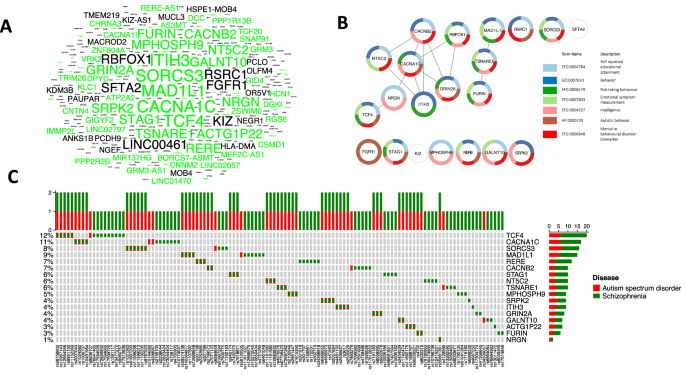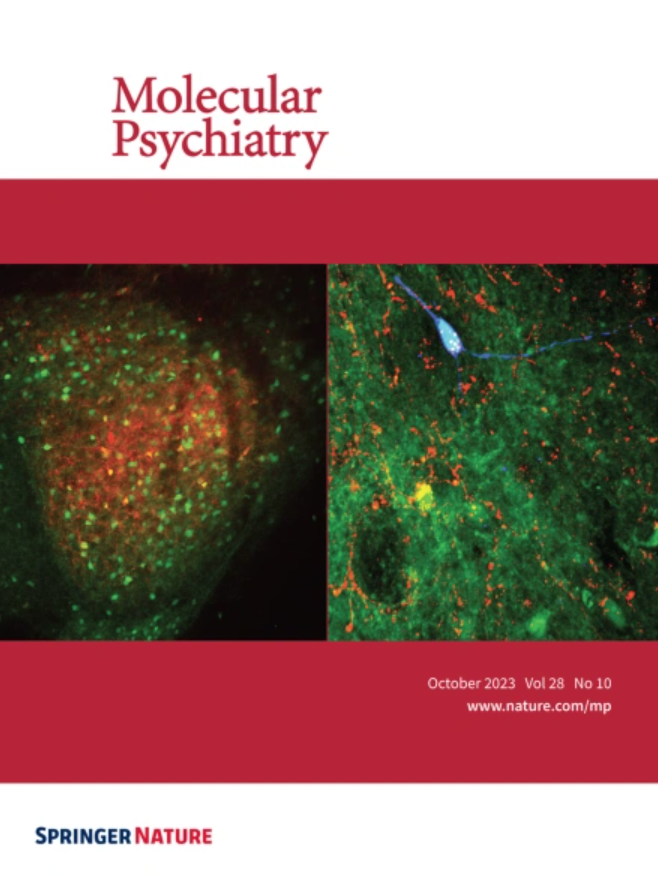利用基因组工具和患者的神经元揭示自闭症和精神分裂症之间的趋同性和差异性
IF 9.6
1区 医学
Q1 BIOCHEMISTRY & MOLECULAR BIOLOGY
引用次数: 0
摘要
自闭症谱系障碍(ASD)具有高度遗传性,会导致异常重复行为以及沟通和认知能力障碍。以往的研究主要关注 ASD 与其他神经精神疾病之间的遗传相关性,但还需要深入了解 ASD 与其他疾病之间的相关性。我们对通过全基因组关联研究(GWAS)发现的 ASD 常见变异进行了广泛的荟萃分析,并将其与精神分裂症(SCZ)的共识基因和单核苷酸多态性(SNPs)进行了比较。我们发现,大约 75% 的 GWAS 基因与 ASD 相关,也与 SCZ 相关。我们进一步研究了从诱导多能干细胞(iPSC)模型中提取的神经元在 ASD 和 SCZ 中的细胞表型。我们的研究结果表明,与对照组神经元相比,ASD 和 SCZ 神经元最初遵循不同的发育轨迹。然而,尽管存在这些早期截然不同的差异,ASD 和 SCZ 神经元在发育成熟后最终还是表现出了类似的突触活动缺陷。ASD和SCZ在遗传上的显著重叠,以及向类似突触缺陷的趋同,凸显了遗传和发育因素在形成这些复杂的神经发育和神经精神疾病的共同潜在机制中错综复杂的相互作用。本文章由计算机程序翻译,如有差异,请以英文原文为准。


Uncovering convergence and divergence between autism and schizophrenia using genomic tools and patients’ neurons
Autism spectrum disorders (ASDs) are highly heritable and result in abnormal repetitive behaviors and impairment in communication and cognitive skills. Previous studies have focused on the genetic correlation between ASDs and other neuropsychiatric disorders, but an in-depth understanding of the correlation to other disorders is required. We conducted an extensive meta-analysis of common variants identified in ASDs by genome-wide association studies (GWAS) and compared it to the consensus genes and single nucleotide polymorphisms (SNPs) of Schizophrenia (SCZ). We found approximately 75% of the GWAS genes that are associated with ASD are also associated with SCZ. We further investigated the cellular phenotypes of neurons derived from induced pluripotent stem cell (iPSC) models in ASD and SCZ. Our findings revealed that ASD and SCZ neurons initially follow divergent developmental trajectories compared to control neurons. However, despite these early diametrical differences, both ASD and SCZ neurons ultimately display similar deficits in synaptic activity as they mature. This significant genetic overlap between ASD and SCZ, coupled with the convergence towards similar synaptic deficits, highlights the intricate interplay of genetic and developmental factors in shaping the shared underlying mechanisms of these complex neurodevelopmental and neuropsychiatric disorders.
求助全文
通过发布文献求助,成功后即可免费获取论文全文。
去求助
来源期刊

Molecular Psychiatry
医学-精神病学
CiteScore
20.50
自引率
4.50%
发文量
459
审稿时长
4-8 weeks
期刊介绍:
Molecular Psychiatry focuses on publishing research that aims to uncover the biological mechanisms behind psychiatric disorders and their treatment. The journal emphasizes studies that bridge pre-clinical and clinical research, covering cellular, molecular, integrative, clinical, imaging, and psychopharmacology levels.
 求助内容:
求助内容: 应助结果提醒方式:
应助结果提醒方式:


